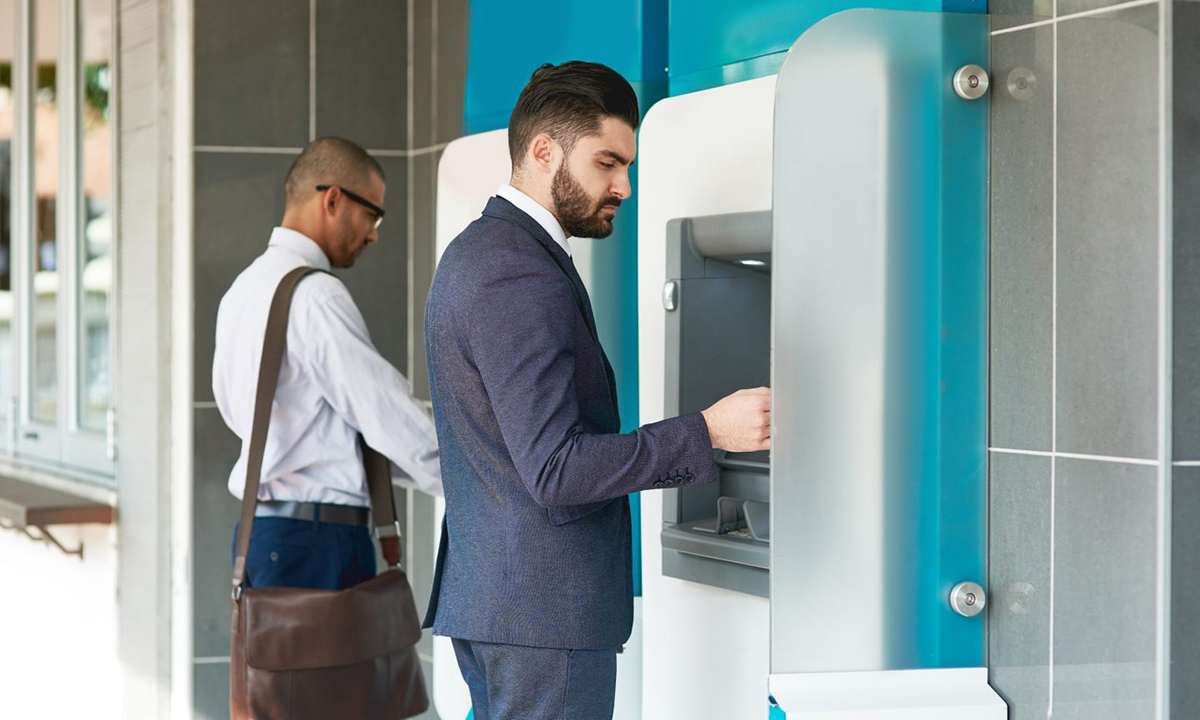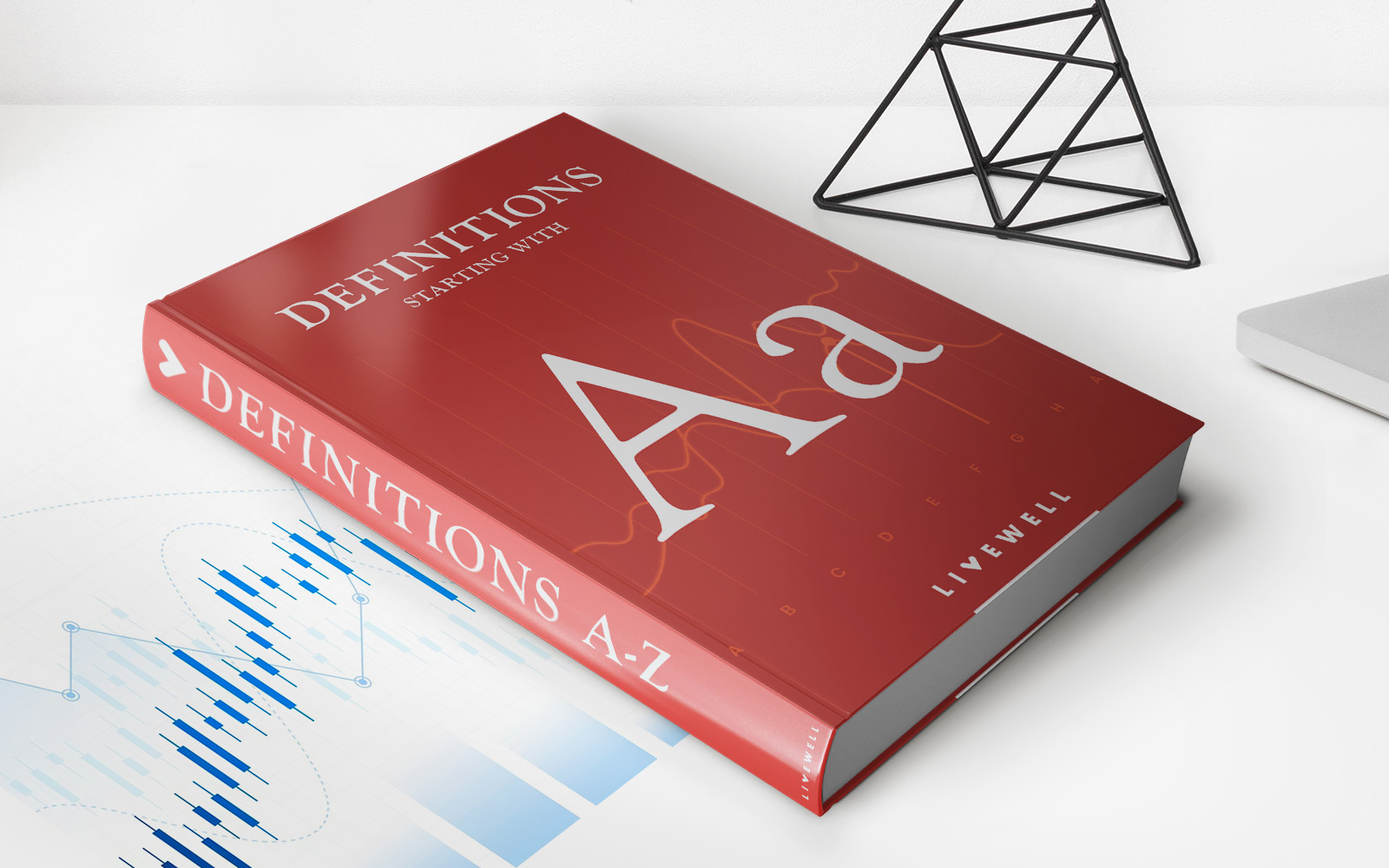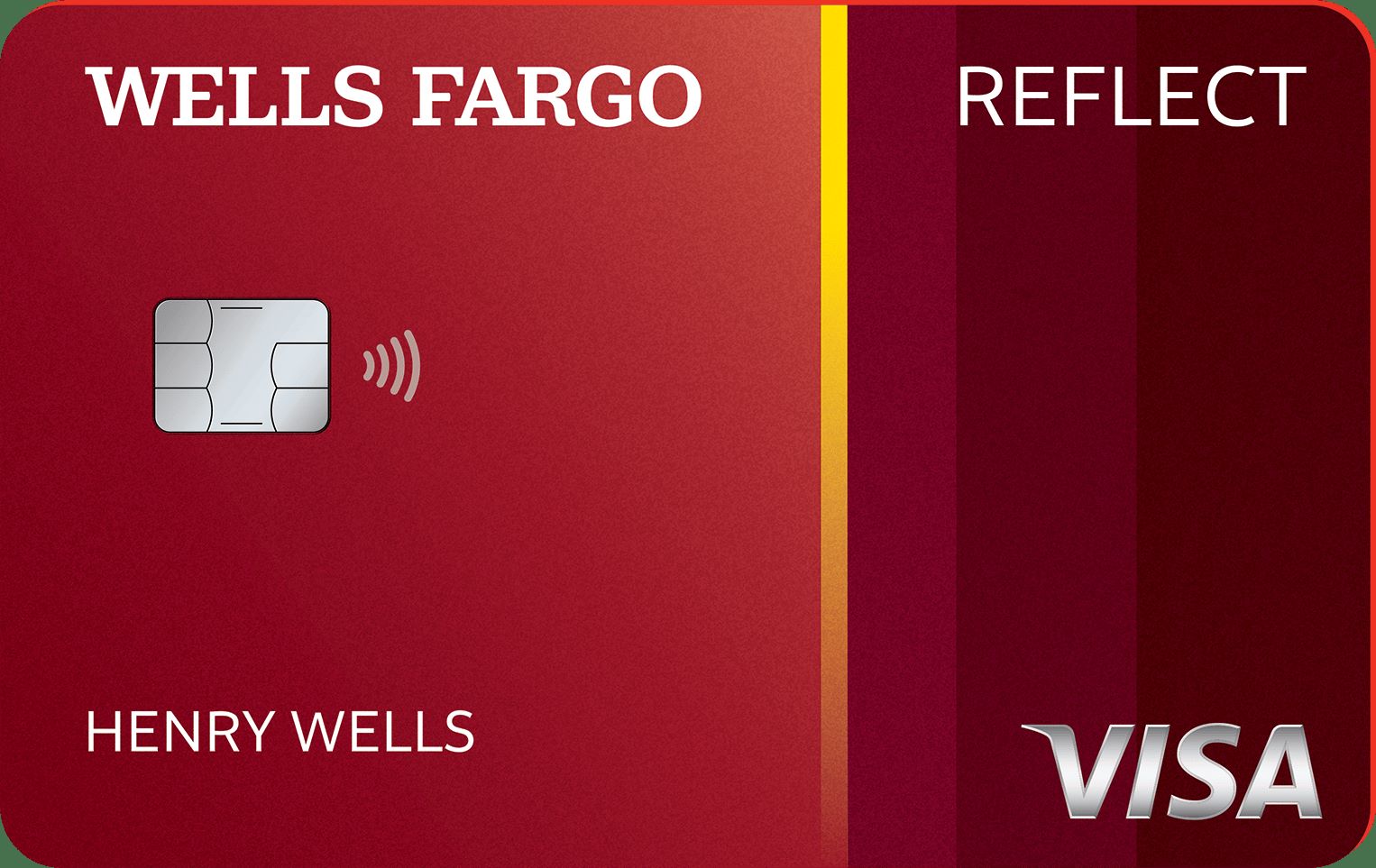

Finance
What Happens If You Lock Your Credit Card
Published: November 4, 2023
Discover the consequences of locking your credit card and how it can impact your finances. Safeguard your personal information and prevent unauthorized activity.
(Many of the links in this article redirect to a specific reviewed product. Your purchase of these products through affiliate links helps to generate commission for LiveWell, at no extra cost. Learn more)
Table of Contents
Introduction
Welcome to the world of credit cards, where convenience and financial freedom go hand in hand. With just a swipe or a tap, you can make purchases, book flights, and enjoy a plethora of benefits. However, along with the perks comes the responsibility of safeguarding your credit card from unauthorized usage.
One way to protect your credit card is by utilizing a feature called “credit card locking.” This feature allows you to temporarily suspend your credit card, preventing any new transactions from taking place. It’s akin to putting a padlock on your credit card, ensuring that only you have control over its usage.
But what happens when you lock your credit card? Are there any consequences or advantages? In this article, we will delve deeper into the world of credit card locking, exploring its benefits, potential consequences, and how to effectively use this feature.
Whether you’re concerned about potential fraudulent activity, want to limit your spending, or simply need some peace of mind, credit card locking can be a valuable tool in your financial arsenal. So, let’s explore the ins and outs of credit card locking and discover the impact it can have on your financial well-being.
Understanding Credit Card Locking
Credit card locking is a security feature offered by many credit card issuers, allowing cardholders to temporarily suspend the use of their credit cards. When you lock your credit card, all new transactions are declined, preventing anyone, including yourself, from making purchases with the locked card. However, it’s important to note that locking your credit card doesn’t cancel or close your account. It simply adds an extra layer of protection.
The process of credit card locking is often quick and convenient. Most credit card issuers provide options to lock and unlock your card through their mobile apps or online banking platforms. This makes it easy to turn on and off the card lock whenever needed, providing you with ultimate control over your credit card usage.
It’s important to understand that credit card locking is different from a credit card freeze. When you freeze your credit card, it restricts all activity on the card, including recurring payments and pre-authorized transactions. On the other hand, credit card locking only prevents new transactions, allowing any existing recurring payments to continue as usual.
The primary purpose of credit card locking is to protect your card from unauthorized use. It acts as a preemptive measure against potential fraud or theft. By locking your card, you can minimize the risk of someone using your credit card information to make unauthorized purchases.
It’s worth noting that credit card locking does not absolve you of financial liability for any fraudulent charges. If you suspect fraudulent activity on your credit card, it’s crucial to report it to your credit card issuer immediately, regardless of whether your card is locked or not. Timely reporting can help limit your liability and protect your finances.
Now that we have a better understanding of what credit card locking entails, let’s explore its benefits and potential consequences in more detail.
Benefits of Locking Your Credit Card
Locking your credit card can offer several benefits that can help protect your financial well-being. Here are some of the key advantages:
- Fraud prevention: One of the primary benefits of credit card locking is the ability to prevent fraudulent transactions. By quickly and easily locking your card through your credit card issuer’s app or online banking, you can reduce the risk of unauthorized use if your card is lost, stolen, or if you suspect fraudulent activity.
- Peace of mind: Credit card locking provides peace of mind, knowing that your card is secure. Whether you’re traveling, have misplaced your card, or simply want to take a break from using credit, the ability to lock your card ensures that no one else can use it without your knowledge or permission.
- Control over spending: Locking your credit card gives you greater control over your spending. If you find yourself struggling with impulse purchases or want to limit your spending for a certain period, locking your card can act as a helpful tool. It serves as a temporary barrier, allowing you to pause and reassess your financial goals.
- Protection during disputes: In case of a dispute with a merchant or a billing error, having your card locked can provide an additional layer of protection. You can be confident that no new charges will be added to your card while the dispute is being resolved, preventing further financial complications.
- Quick and convenient: Most credit card issuers offer user-friendly mobile apps and online banking platforms, making it effortless to lock and unlock your card whenever needed. With just a few taps on your smartphone, you can gain control over the usage of your credit card in a matter of seconds.
These benefits make credit card locking an attractive feature for those looking for added security and control over their credit card usage. However, it is important to consider the potential consequences of locking your credit card, which we will explore in the next section.
Potential Consequences of Locking Your Credit Card
While credit card locking offers several benefits, there can be potential consequences to consider before deciding to lock your credit card:
- Temporary inconvenience: When you lock your credit card, all new transactions will be declined, including legitimate purchases. If you forget to unlock your card before making a planned purchase, it can cause temporary inconvenience and frustration. It’s important to remember to unlock your card before you need to use it.
- Impact on recurring payments: If you have any recurring payments set up with your credit card, locking it can disrupt those payments. It’s crucial to ensure that you switch these payments to an alternate card or make appropriate arrangements to prevent any missed payments or late fees.
- Potential impact on credit score: Credit card utilization is an important factor in determining your credit score. When you lock your credit card, it reduces your available credit, which can increase your credit utilization ratio. This can potentially have a negative impact on your credit score, especially if you have high balances on other cards.
- Delayed fraud detection: While credit card locking can act as a preventive measure against fraud, it may also impact your ability to detect potentially fraudulent transactions. If your card is locked, you won’t receive immediate notifications for any suspicious activity. Therefore, it’s crucial to regularly monitor your account and promptly unlock your card if you notice any unauthorized transactions.
- Missing out on rewards and benefits: If your credit card offers rewards or benefits tied to certain spending categories, locking your card may prevent you from earning those rewards. It’s important to weigh the potential loss of rewards against the benefits of card locking for your specific financial situation.
It’s essential to consider these potential consequences and evaluate whether the benefits of credit card locking outweigh any potential drawbacks in your individual circumstances. Make sure to carefully review the terms and conditions of your credit card issuer and understand the implications of locking your card before making a decision.
Now that we have explored the benefits and potential consequences of credit card locking, let’s take a look at how to effectively lock and unlock your credit card.
How to Lock Your Credit Card
Locking your credit card is a straightforward process, and most credit card issuers provide convenient methods for doing so. Here are the general steps to follow:
- Access your credit card issuer’s platform: Use your computer, smartphone, or tablet to log in to your credit card issuer’s online banking platform or mobile app. If you haven’t registered for online access, you may need to complete the registration process first.
- Navigate to your credit card settings: Once logged in, find the section or tab that allows you to manage your credit card settings. It is typically labeled as “Card Management,” “Security,” or something similar.
- Locate the card locking feature: Within the card settings, look for the option to lock or freeze your card. In most cases, it will be clearly labeled. Click on the lock icon or select the appropriate option to proceed.
- Confirm the locking: After selecting the lock option, you may be asked to confirm your decision. This is to ensure that you intended to lock your credit card and prevent accidental actions. Review the confirmation message and proceed as instructed.
- Verify the card lock status: Once you have confirmed the lock, verify that your credit card is now locked. Look for a visual indicator, such as a padlock icon, next to your card details. This will indicate that your card is now locked and no new transactions can be made.
To unlock your credit card and resume normal usage, simply follow the same steps and select the option to unlock your card within the card settings. It’s important to note that unlocking your card may require additional verification, such as providing your security code or answering security questions.
Remember to always keep track of your credit card lock status and regularly monitor your account for any suspicious activity. If you have any concerns or need assistance, contact your credit card issuer’s customer service for guidance.
Now that you know how to lock and unlock your credit card, let’s address some common questions about credit card locking.
Unlocking Your Credit Card
Unlocking your credit card is a simple process that allows you to resume normal usage. Follow these steps to unlock your credit card:
- Access your credit card issuer’s platform: Log in to your credit card issuer’s online banking platform or mobile app using your credentials. Navigate to the card settings section.
- Find the card unlock option: Locate the option to unlock your credit card within the card settings. It is typically labeled as “Unlock,” “Unfreeze,” or something similar. Select this option to proceed.
- Provide verification: To ensure the security of your account, you may be asked for additional verification, such as your security code or answers to security questions. Follow the prompts and provide the necessary information.
- Confirm the unlocking: After providing the required verification, confirm your decision to unlock your credit card. Review any confirmation messages and proceed as instructed.
- Verify the unlock status: Once you have successfully unlocked your credit card, verify the unlock status. Look for any visual indicators, such as the absence of a padlock icon, that suggest your card is now unlocked and ready for use.
It’s important to note that unlocking your credit card may take immediate effect or require a short processing time, depending on your credit card issuer’s policies. If you encounter any issues or have questions during the unlocking process, reach out to your credit card issuer’s customer service for assistance.
Remember, while unlocking your credit card allows you to resume normal transactions, it’s essential to remain vigilant and monitor your account for any suspicious activity. Regularly review your statements and promptly report any unauthorized transactions to your credit card issuer.
Now that you know how to unlock your credit card, let’s address some frequently asked questions about credit card locking.
Frequently Asked Questions about Credit Card Locking
Here are some common questions and answers regarding credit card locking:
- Can I still make payments on my locked credit card?
- Will locking my credit card affect automatic bill payments?
- Can I lock specific transactions or transaction types?
- Will credit card locking protect me from existing fraudulent charges?
- Can joint account holders lock a credit card?
- Is credit card locking available for debit cards?
Yes, you can still make payments on your locked credit card. Only new transactions will be declined. However, it’s important to review your credit card issuer’s policies on payment options for locked cards.
Yes, locking your credit card may affect automatic bill payments associated with that card. It’s crucial to update your payment information with the appropriate merchants or switch the payments to an alternate card to avoid any disruptions.
No, credit card locking typically suspends all new transactions on your card. You cannot lock specific transactions or transaction types.
Credit card locking will prevent any new transactions, but it will not reverse or remove any existing fraudulent charges. If you notice unauthorized activity, report it to your credit card issuer immediately.
The ability to lock a credit card may depend on your credit card issuer’s policies and the specific terms of your joint account. It’s best to contact your credit card issuer to determine whether joint account holders can utilize the locking feature.
While credit card locking is primarily associated with credit cards, some banks and financial institutions offer similar locking features for debit cards. Check with your debit card issuer to see if this option is available.
These are just a few frequently asked questions about credit card locking. If you have any additional questions or concerns, it’s recommended to reach out to your credit card issuer’s customer service. They will be able to provide you with specific information and assistance based on your unique situation.
Now, let’s conclude our discussion on credit card locking.
Conclusion
Credit card locking can be a valuable tool in protecting your financial well-being. By temporarily suspending your credit card and preventing unauthorized transactions, you gain control and peace of mind. Understanding the benefits and potential consequences of locking your credit card is essential in making an informed decision.
The benefits of credit card locking include fraud prevention, peace of mind, control over spending, protection during disputes, and convenience. It allows you to safeguard your card in case of loss, theft, or suspicious activity. However, you should be aware of potential inconveniences such as disrupted recurring payments and the impact on credit utilization and reward earning potential.
To lock your credit card, access your credit card issuer’s platform, navigate to your card settings, and locate the locking feature. Unlocking your credit card follows a similar process. Ensure you provide any necessary verification and monitor your account for any suspicious activity.
Frequently asked questions about credit card locking cover topics such as payments, automatic bill payments, specific transactions, protection from existing fraudulent charges, and availability for joint account holders.
In conclusion, credit card locking offers an extra layer of security and control over your credit card. By understanding how it works, utilizing it effectively, and weighing the benefits against the potential consequences, you can make a decision that aligns with your financial goals and priorities.
Remember, always stay vigilant and actively monitor your credit card activity, even when it is locked. Promptly report any unauthorized charges or suspicious activity to your credit card issuer. With the right precautions and responsible usage, credit card locking can be a valuable tool in protecting your financial well-being.














